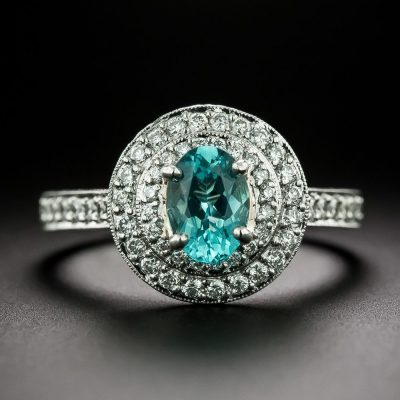
Commonly found as a lively teal-turquoise blue color transparent crystal, it can also be yellow, green, pink, or purple. Having a hardness on the Moh’s Scale of 5 makes the gem less popular for use in jewelry than gems higher up the scale. Care must be taken when wearing apatite set in a ring or bracelet as it scratches relatively easily.
Gemological Information for Apatite
| Color: | Colorless, Yellow, Green, Violet, Blue, Pink & Brown |
| Crystal Structure: | Hexagonal |
| Refractive Index: | 1.634 - 1.638 |
| Durability: | Fair to Poor |
| Hardness: | 5 |
| Family: | |
| Similar Stones: | Topaz, Andalusite, Danburite, Barite, Tourmaline |
| Treatments: | None Known at this Time |
| Country of Origin: | Mexico, Brazil, Myanmar |
Apatite Care
| Ultrasonic Cleaning: | Risky |
| Steam Cleaning: | Never |
| Warm Soapy Water: | Safe |
| Chemical Attack: | Attacked by Sulfuric and Hydrochloric Acid |
| Light Sensitivity: | Stable with Some Fading |
| Heat Sensitivity: | Sensitive, Changes Color |
Further Resources
Gems & Gemology: The Quarterly Journal of The Gemological Institute of America.
Gem: Apatite
- Summer 1962, Cat’s-Eye Apatite, p. 315, 2pp.
- Summer 1963, Yellow Cat’s-Eye Apatite, p. 44, 1p.
- Winter 1965, Cat’s-Eye Apatite, p. 372, 1p.
- Summer 1966, A Cat’s-Eye Apatite of 220 cts., p. 46, 1p.
- Winter 1972, Rare Earth Absorption Spectra in Apatite, by Anderson, p. 101, 1p.
- Winter 1972, A 40 ct. Cat’s-Eye Apatite, p. 114, 1p.